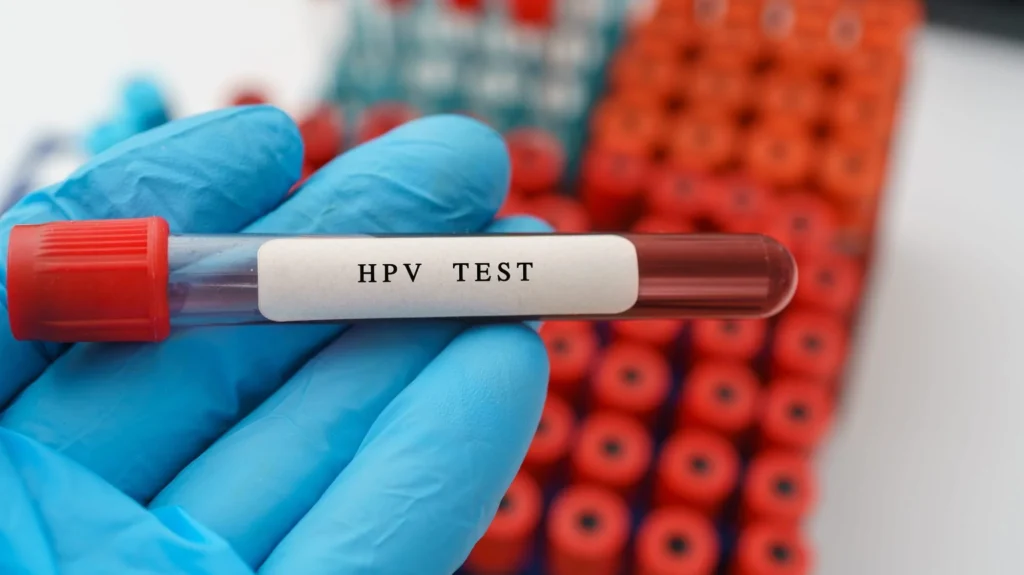Human Papillomavirus (HPV) is one of the most common sexually transmitted infections globally, affecting millions of individuals each year. While the majority of HPV infections may go unnoticed and clear up on their own, certain strains can lead to serious health complications such as cervical cancer, anal cancer, and genital warts. Fortunately, HPV tests provide a powerful tool to detect high-risk strains early, enabling individuals to take preventive measures and manage their health effectively. In this article, we will explore the importance of HPV tests, the testing process, and how to take proactive steps in safeguarding your health.
What is the HPV Test and Why is It Essential?
The HPV test is a screening tool that detects the presence of the Human Papillomavirus in the body, focusing on identifying high-risk strains that are associated with cancer. While most people with HPV never develop symptoms, some strains of the virus can cause abnormal cell changes that may lead to cancer over time, particularly in the cervix, anus, or throat. The HPV test plays a critical role in detecting these changes before they develop into more serious conditions.
For women, regular HPV testing is often recommended as part of routine cervical cancer screening. Since HPV is the primary cause of cervical cancer, early detection of the virus can help reduce the risk of cancer by allowing for timely intervention. Additionally, men who engage in sexual activities with other men or those with weakened immune systems may also benefit from HPV testing to detect any abnormal cells early.
The HPV Testing Process: How Does It Work?
HPV testing is a relatively simple procedure. For women, the test typically involves collecting a sample of cells from the cervix during a pelvic exam. This sample is taken using a small swab or brush to gather cells from the cervix, which are then sent to a laboratory for analysis. The laboratory tests the sample for the presence of high-risk HPV strains, such as HPV 16 and HPV 18, which are known to cause cancer.
If the HPV test detects the presence of high-risk strains, further steps may be recommended, such as a colposcopy (a procedure that allows for a closer examination of the cervix) or additional monitoring through regular Pap smears. If the test is negative, it means that no high-risk HPV was detected, and you may not need further follow-up.
For men, HPV testing is less commonly performed. However, individuals at higher risk of HPV-related cancers, such as men who have sex with men or those who are HIV positive, may be tested. HPV testing for men often involves visual examinations of genital warts or samples taken from the throat, anus, or penis to check for signs of the virus.
Who Should Get Tested for HPV?
While HPV testing is essential for some individuals, it is not necessarily recommended for everyone. Here are a few guidelines on who should consider getting an HPV test:
1. Women Over 30
For women over the age of 30, HPV testing is typically recommended every five years as part of routine cervical cancer screening, in conjunction with a Pap smear. This is because the risk of developing cervical cancer increases with age, and regular testing can help detect early signs of abnormal cell changes.
2. Women with Abnormal Pap Smears
If you have had an abnormal Pap smear result, your healthcare provider may recommend an HPV test to check for the presence of high-risk HPV strains. Abnormal cell changes identified in a Pap smear can sometimes be caused by HPV, and detecting the virus early can help prevent the development of cervical cancer.
3. Men at Higher Risk
While HPV testing is not commonly performed for men, those who are at a higher risk of developing HPV-related cancers—such as those who are HIV positive or who have sex with men—may be advised to undergo testing. Regular HPV testing can help detect abnormal cells and reduce the risk of developing anal, penile, or throat cancer.
4. People with New or Multiple Sexual Partners
If you are sexually active and have multiple sexual partners, or if you are starting a new sexual relationship, HPV testing may be a good idea to detect the virus early and take preventive measures. HPV is highly contagious, and testing can help prevent the spread of the virus to others.
What Happens if Your HPV Test Is Positive?
A positive HPV test result does not necessarily mean that you have cancer. In fact, most HPV infections clear up on their own without causing any symptoms or health problems. However, a positive test result indicates that you have been exposed to one of the high-risk strains of HPV, which may lead to abnormal cell changes over time.
If your test is positive, your healthcare provider may recommend additional tests or follow-up procedures to monitor any abnormal cell changes. This may include a Pap smear, which examines cervical cells for any signs of dysplasia (precancerous changes). In some cases, a colposcopy may be necessary to closely examine the cervix and take biopsies if any abnormal tissue is found.
For men, if HPV testing detects abnormal cells, further monitoring and tests may be required to check for the development of anal, penile, or throat cancers. Early detection and regular follow-up screenings are key to managing the risk of these cancers effectively.
HPV Testing at Home: A Convenient and Discreet Option
In addition to traditional testing at a healthcare clinic, home HPV test kits are becoming increasingly popular due to their convenience and privacy. These kits allow individuals to collect their own sample from home and send it to a laboratory for analysis. Home HPV tests typically involve using a swab to collect a sample from the vaginal area for women or the anal area for men.
One benefit of home testing is the convenience it offers, as it allows you to conduct the test at your own pace without the need for a doctor’s visit. If you’re considering home HPV testing, you can purchase reliable test kits from trusted suppliers like Medicines Online, which offers HPV test kits designed for easy use and accurate results.
Conclusion: Take Charge of Your Health with HPV Testing
HPV testing plays a crucial role in preventing HPV-related cancers and maintaining overall health. Regular screenings, particularly for women over the age of 30 and individuals at higher risk, can help detect high-risk strains of the virus early, allowing for timely intervention and reducing the risk of developing cancer.
Whether you choose to get tested at a healthcare clinic or opt for the convenience of home testing, it’s essential to make HPV testing a part of your routine healthcare regimen. Early detection is key to managing the virus and preventing future health complications. If you’re ready to take the next step in protecting your health, consider using a reliable HPV test kit to screen for HPV from the comfort of your home.
By staying proactive and informed, you can reduce your risk of HPV-related health issues and enjoy a healthier, more confident future.




















